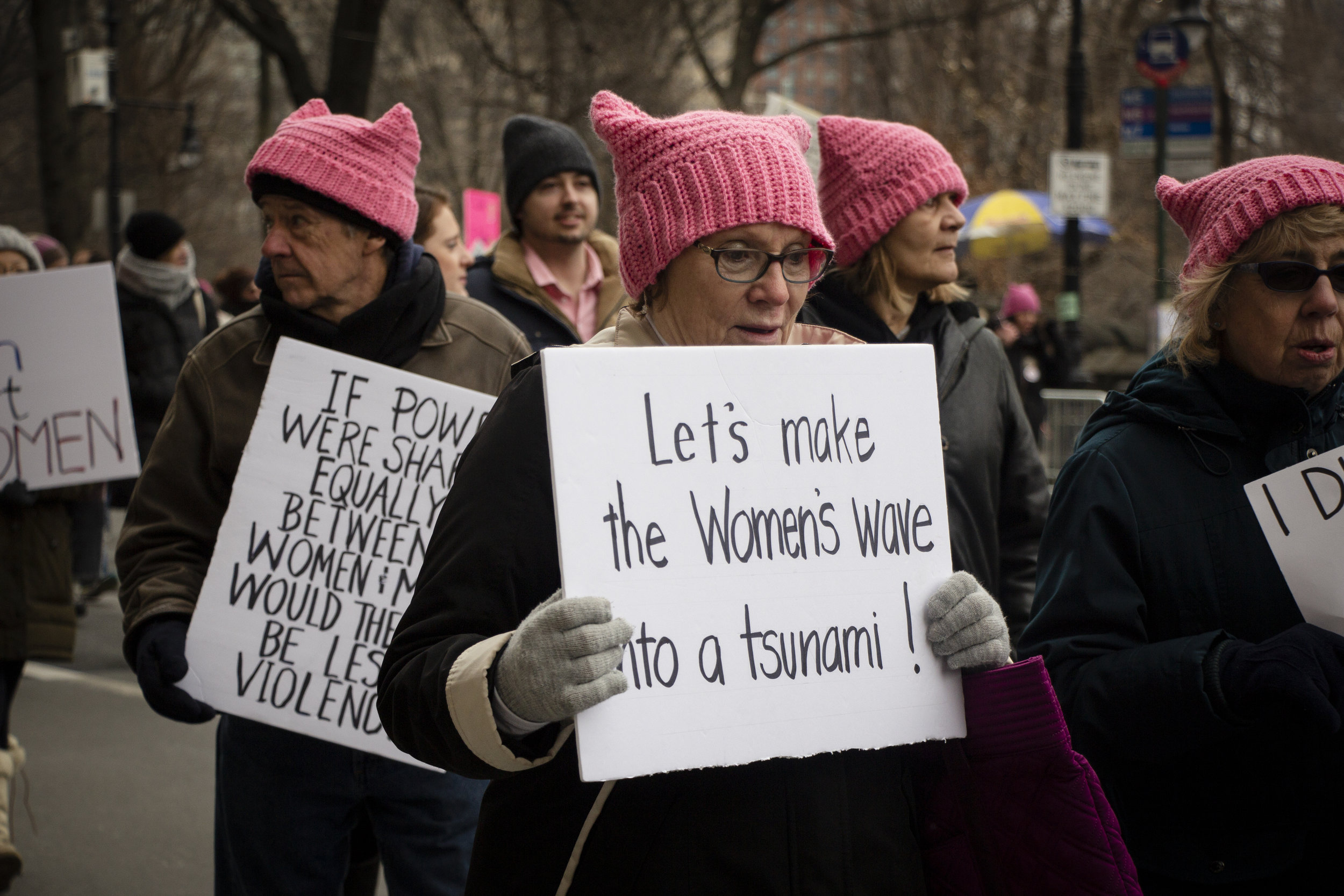Women's March in New York City Ensues Despite Divisions
A women holds a sign that reads “Let’s make the Women’s wave into a tsunami” at the NYC Women’s March on 59th Street on Saturday, January 19, 2019. || Photo credit to Bernadette Berdychowski
Amidst controversy surrounding the founders of the Women’s March and a month into the partial government shutdown, New York City still had its third annual Women’s March this past Saturday.
Beginning at 11 a.m. on the Upper West Side at 72nd St. & Central Park West, the protestors marched south to 44th Street and Sixth Avenue in Midtown in this event hosted by the Women’s March Alliance.
According to Women’s March Alliance mission statement, the Women’s March is used “to harness the political power of diverse women and their communities to create transformative social change.”
“It’s important to always protest numbers in masses and this is a part of my way of contributing. I think it’s awful what’s going on in Washington,” stated Lucea Spinelli, a buttons seller at the Women’s March .
A stand of Women’s March gear on 6th Avenue in NYC. || Photo credit to Bernadette Berdychowski
This worldwide march began in 2017, the day after the inauguration of President Donald Trump, having 4.6 million people participate nationwide, and being the largest single-day protest in U.S. history, according to the Washington Post.
Another protestor, Adam Hall, a Brooklyn musician who carried a sousaphone on his back said he was here for all women, especially his wife.
Adam Hall plays a sousaphone at the Women’s March in NYC. || Photo credit to Morgan Chittum.
People attending the Women’s March in NYC. || Photo credit to Morgan Chittum.
In its third year, attendance was lower for the march than in years past. According to data from the Associated Press and The New York Times, in its first year Washington had 470,000 people participate in the march and only an estimated 100,000 people in 2019. This is potentially due to frigid temperatures or controversy surrounding the Women’s March founders, Teresa Shook, Linda Sarsour and Tamika Mallory.
Shook accused her fellow leaders of the national march organization, particularly targeting Sarsour and Mallory of antisemitism. Tamika Mallory has maintained an association with Louis Farrakhan, leader of Nation of Islam, which the Southern Poverty Law Center considers a hate group. Additionally, Linda Sarsour is under fire for criticizing Israeli policy.
On Saturday Perez addressed the allegations in Washington at Freedom Plaza.
"My sisters in Women's March and I have faced accusations that have hurt my soul -- charges of antisemitism and neglecting our LGBTQIA family," co-chair Carmen Perez said. "And I want to be unequivocal in affirming that Women's March and I and my sisters condemn antisemitism and homophobia and transphobia in all forms...I vow to anyone who doubts their place in the Women's March: You are welcome here. I vow to Jewish women: There is a place at the table for you."
The rift caused two separate protests in New York, one in Foley Square by Women’s March NYC and the other in UWS by Women’s March Alliance who has organized the protest since 2017.
Girls carrying signs on 59th Street in NYC during the Women’s March on Saturday, January 19, 2019. || Photo credit to Bernadette Berdychowski
“I’m kind of surprised there wasn’t a lot of turn out since it was really packed last year. Also, I wish there were more POC and trans representation at the march, but overall I had a fun time,” student protester, Shirley Zhang said.
Even though rumors and bigotry allegations have circulated, some protestors remain optimistic about the Women’s March.
Judy Jacob, a federal employee, stated, “I am marching to be a part of a movement. We are marching to say we are here. We count. Pay attention to our issues…We are marching for equality.”
A group of girls wearing pink hats walk in the Women’s March NYC. || Photo credit to Bernadette Berdychowski






